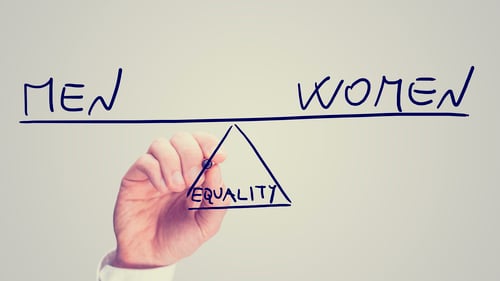It took 21st place after slipping to 11th place last year from 8th the year before that.
In its 2017 report issued on Thursday, WEF said a decade of slow progress towards better parity between the sexes had screeched to a halt, warning the global gender gap was now widening.
In recent years, women have made significant progress towards equality in a number of areas such as education and health.
But the global trend now seems to have made a U-turn, especially in workplaces, where full gender equality is not expected to materialize until 2234, WEF said.
The organization's annual report tracks the disparities between the sexes in four areas: education, health, economic opportunity and political empowerment.
A year ago WEF estimated that it would take 83 years to close the remaining gap.
But since then women's steady advances in the areas of education, health and political representation have plateaued, and for the fourth year running, equality in the workplace has slipped further from view.
Thursday's report said that at the current rate of progress, it would now take a full 100 years on average to achieve overall gender equality.
Overall, the Nordic countries once again dominated the top of the table: men and women were most equal in Iceland, followed by Norway and Finland.
Rwanda came in fourth, with another Nordic country, Sweden, in fifth place.
They were joined by Nicaragua, Slovenia, Ireland, New Zealand and the Philippines in the top 10.
WEF said Switzerland's 10-place drop was due to a widening gender gap on the Political Empowerment subindex.
There was a smaller share of women in ministerial positions as well as a falling share of women in professional and technical roles.
The country’s progress recently has not fully kept pace with that of the region’s other top performers on the Economic Participation and Opportunity subindex, it said.
More positively, Switzerland does record a modest positive increase on the wage equality for similar work indicator.
Among the world's 20 leading economies, France fared the best, taking 11th place overall, up from 17th place last year and 70th place in 2006.
France's rise is largely thanks to increasing numbers of women in politics, including complete parity among government ministers.
The United States meanwhile dropped four spots to 49th place due to women's dwindling political representation, with a “significant decrease in gender parity in ministerial level positions”, the report said
Syria, Pakistan and finally Yemen rounded off the rankings.



 Please whitelist us to continue reading.
Please whitelist us to continue reading.